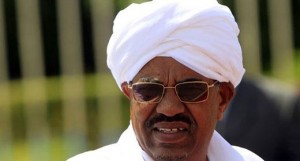 Sudanese president Omar al-Bashir is expected to arrive in Cairo today, 16 September 2012, in his first visit to Egypt since the election of Egyptian President Mohammed Morsi. The Cairo Institute for Human Rights Studies denounces the decision by the Egyptian authorities to host al-Bashir, who is wanted by the International Criminal Court (ICC) for war crimes and crimes against humanity committed against the Sudanese people. Welcoming al-Bashir in Cairo sends the message that Egyptian foreign policy has not undergone a radical change in the wake of the January 25 Revolution and that Egypt still welcomes people who are accused of committing gross human rights violations against civilians. Unfortunately, this decision further reinforces the impunity and protection that al-Bashir has enjoyed from governments across the Arab region. At a time when the perpetrators of similar crimes in Egypt are being acquitted, the decision to host al-Bashir indicates that President Morsi, as Egypt’s first democratically elected president, is not dedicated to upholding justice for victims of grave human rights crimes.
Sudanese president Omar al-Bashir is expected to arrive in Cairo today, 16 September 2012, in his first visit to Egypt since the election of Egyptian President Mohammed Morsi. The Cairo Institute for Human Rights Studies denounces the decision by the Egyptian authorities to host al-Bashir, who is wanted by the International Criminal Court (ICC) for war crimes and crimes against humanity committed against the Sudanese people. Welcoming al-Bashir in Cairo sends the message that Egyptian foreign policy has not undergone a radical change in the wake of the January 25 Revolution and that Egypt still welcomes people who are accused of committing gross human rights violations against civilians. Unfortunately, this decision further reinforces the impunity and protection that al-Bashir has enjoyed from governments across the Arab region. At a time when the perpetrators of similar crimes in Egypt are being acquitted, the decision to host al-Bashir indicates that President Morsi, as Egypt’s first democratically elected president, is not dedicated to upholding justice for victims of grave human rights crimes.
In March of 2009, the ICC issued an arrest warrant against President al-Bashir, citing charges of crimes against humanity and war crimes committed during the conflict in Darfur which started in 2003. Over the course of the conflict, an estimated 300,000 people were killed and millions were displaced. Crimes continue to be committed with impunity by the Sudanese regime, most recently in the context of demonstrations against rising fuel prices and other costs of living. In addition to arbitrary arrest of protestors, journalists, and opposition leaders, Sudanese security forces opened live fire on a demonstration in Nyala in Southern Darfur on July 31, killing at least 10, many of whom were high school students.
Since the ICC’s issuance of the warrant against him, however, al-Bashir has endured few consequences. He has been hosted by many Arab countries, despite the charges which have been brought against him internationally. However, other world leaders have decided to follow a more principled approach, demonstrating respect for both their own people and the victims of Sudan by refusing to welcome al-Bashir on their territory, due to his status as a fugitive from justice. Most recently, Malawi refused to allow al-Bashir to attend the July, 2012 summit of the African Union, which was scheduled to be held in the country. As a result, the African Union hosted the summit at its own headquarters in Addis Ababa, Ethiopia.
“After having risen up during the January Revolution against such abuses in our own country here in Egypt, it is a shame that our foreign policy remains unchanged towards those accused of committing war crimes and crimes against humanity against our neighbors in Sudan,” said Ziad Abdel Tawab, Deputy Director of the Cairo Institute for Human Rights Studies. “On March 25, 2009, CIHRS and three other Egyptian organizations filed a complaint with the office of the Egyptian public prosecutor, demanding that the Egyptian authorities immediately arrest president al-Bashir and surrender him to the ICC when he visited Cairo only weeks following the ICC issuance of a warrant for his arrest. Unfortunately, as with hundreds of torture complaints submitted by Egyptian NGOs under Mubarak, the complaint against President al-Bashir was closed without action.”
Although Egypt is not a state party to the Rome Statute, which established the ICC, it has a moral responsibility to detain Omar al-Bashir upon his arrival in Cairo as a fugitive from justice and to surrender him to the ICC. If such steps are not taken, the Egyptian authorities will be supporting impunity and undermining basic principles of international law, including that no one – not even heads of state – shall be immune from punishment for serious crimes such as crimes against humanity and war crimes.
Share this Post

